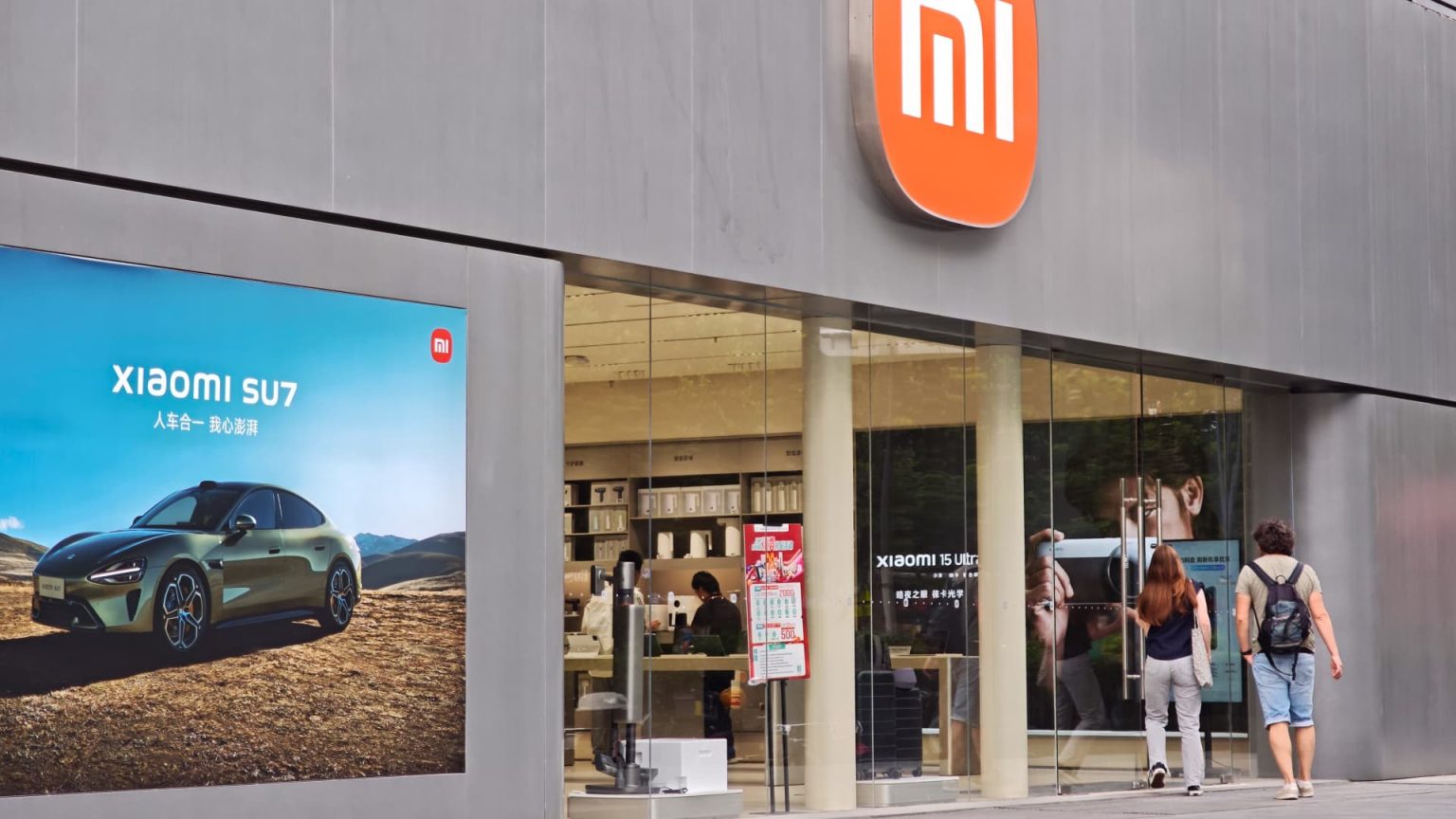Xiaomi, the Chinese smartphone giant, has reported record net profits for the second consecutive quarter, sparking a wave of optimism among analysts regarding its stock performance. Despite having earnings that still pale in comparison to Apple’s, Xiaomi boasts a larger market share in China and has diversified into the electric vehicle sector, particularly crucial as Apple has retracted its car plans. The rise in Xiaomi’s stock value, along with its impressive earnings, highlights the company’s resilience and growth trajectory against various market pressures.
| Article Subheadings |
|---|
| 1) Xiaomi’s Financial Performance in Q1 |
| 2) Competitive Landscape and Market Dynamics |
| 3) The Launch of New Technology |
| 4) The Significance of the YU7 SUV |
| 5) Future Outlook and Analyst Predictions |
Xiaomi’s Financial Performance in Q1
In the first quarter, Xiaomi reported an adjusted net income of 10.68 billion yuan (approximately $1.48 billion). This figure exceeded analysts’ expectations, which were forecasted at 9.48 billion yuan according to a FactSet analyst poll. The company’s revenue reached 111.29 billion yuan, again surpassing predictions of 108.49 billion yuan. This healthy financial performance highlights not only Xiaomi’s resilience in a competitive tech landscape but also its effective business strategies aimed at maintaining profitability amidst challenging market conditions. As a result, Xiaomi’s stock has seen a surge of over 45% this year, with analysts expressing increased confidence in its growth potential.
Competitive Landscape and Market Dynamics
Xiaomi has managed to carve a significant niche for itself within the Chinese smartphone market despite the dominant presence of Apple’s iPhone. Analysts suggest that Xiaomi’s strategy revolves around a compact offering of high-quality products at competitive prices, particularly in the rapidly evolving smartphone ecosystem. While many companies face challenges due to shifting consumer preferences, Xiaomi is esteemed for its extensive product portfolio that incorporates technology from various sectors. The ongoing trade tensions and pressures faced by firms like Apple also bolster Xiaomi’s reputation as a favored local brand among Chinese consumers. As analysts closely monitor these dynamics, they recognize that Xiaomi’s strong performance in Q1 indicates its increasing competitiveness within the marketplace.
The Launch of New Technology
A pivotal moment for the company was the unveiling of its Xring O1 chip on May 22. This chip is set to power Xiaomi’s new flagship smartphone, the 15S Pro, which promises advanced capabilities at a considerably lower price than Apple’s iPhone 16 Pro. Xiaomi’s CEO, Lei Jun, asserted that the Xring O1 outperforms Apple’s A18 Pro in critical areas, including thermal efficiency during gaming applications. The innovative technology is expected to further enhance Xiaomi’s market positioning, enabling the company to appeal to consumers who look for high-performing devices without the premium pricing typically associated with rival brands.
The Significance of the YU7 SUV
In addition to its smartphone offerings, Xiaomi is making strides in the electric vehicle (EV) market, signaling a bold expansion strategy. The upcoming launch of the YU7 SUV, scheduled for July, represents a crucial milestone for Xiaomi. Although the exact pricing is yet to be disclosed, initial reports suggest that the YU7 will feature an extended driving range, significantly surpassing that of competitors such as Tesla’s Model Y. Analysts anticipate that the release of the YU7 could serve as a key catalyst for the company, potentially increasing its average selling prices (ASP), enhancing profit margins, and stimulating overall earnings growth. The expectation is that if sales are strong, they could further validate Xiaomi’s foray into the automotive sector.
Future Outlook and Analyst Predictions
Looking ahead, numerous analysts have issued optimistic targets for Xiaomi’s stock. Following the earnings report, Jefferies analysts increased their price target from 69.50 HKD to 73 HKD, anticipating a potential upside stemming from Xiaomi’s robust performance in the artificial intelligence of things (AIoT) segment. Morgan Stanley analysts echoed this sentiment, describing the YU7 SUV launch as a pivotal moment and predicting it may significantly influence the company’s success by allowing for higher price points in the EV market. However, some caution has been expressed by JPMorgan analysts regarding the pace of Xiaomi’s ecosystem-related revenue growth, suggesting it lags compared to competitors. Nevertheless, the key takeaway among analysts is a broadly favorable outlook premised on Xiaomi’s innovative adaptations and product diversity, which have contributed to its recent financial success.
| No. | Key Points |
|---|---|
| 1 | Xiaomi reported a record net profit of 10.68 billion yuan in Q1. |
| 2 | The company aims to gain market share in the premium smartphone segment in China. |
| 3 | The Xring O1 chip launch is significant for enhancing smartphone performance. |
| 4 | The YU7 SUV’s release could be a potential game-changer for Xiaomi’s growth strategy. |
| 5 | Analysts express a generally favorable outlook, although some caution exists regarding ecosystem revenue growth. |
Summary
Xiaomi’s impressive Q1 performance, buoyed by innovative technology and an expanding product line, demonstrates the company’s ability to thrive in a competitive market. As it ventures into electric vehicles with the YU7 SUV and continues to enhance its smartphone offerings with the Xring O1 chip, the prospects for growth appear promising. Analysts’ optimistic outlooks and strategic initiatives indicate that Xiaomi is positioning itself for sustained success in both the technology and automotive sectors.
Frequently Asked Questions
Question: What factors contributed to Xiaomi’s recent financial success?
Xiaomi’s financial success can be attributed to its robust performance across various segments, particularly its smartphones and AIoT products, as well as its strategic innovations like the Xring O1 chip.
Question: How does Xiaomi’s market strategy compare to Apple’s?
Xiaomi focuses on offering high-quality products at competitive prices, targeting local consumers in China, whereas Apple typically maintains a premium pricing strategy.
Question: What are the implications of the YU7 SUV for Xiaomi’s future?
The YU7 SUV represents a crucial expansion into the electric vehicle market for Xiaomi, with potential to significantly boost its average selling prices and overall profitability if market reception is strong.


